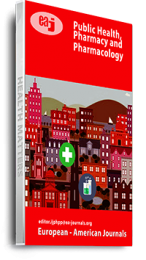Sickle cell disease (SCD) is a global health concern with 10 million people affected and about 300,000 newly diagnosed children born worldwide. Africa bears the brunt of SCD, sub-Saharan Africa accounting for 75%. Nigeria accounts for 33% of the global burden of PLWSCD in CRS. The study aimed to investigate Psychosocial Factors Influencing Informal Care Givers Burdenof People Living with Sickle Cell Disease (SCD) In Cross, River State, Nigeria. Two specific objectives was used in the study. The study employed a cross-sectional research design. Questionnaire, elicited data from 385 respondents. Face and content validity and test-retest method with a reliability coefficient of 0.83 was obtained. The result revealed that 49(12.7%) respondents experienced “Little or no Burden”, 112(29.1%) “Mild to Moderate Burden”, 216(56.1%) “Moderate to Severe Burden”, 8(2.1%) “Severe Burden”. 273(70.9%) did not receive any form of support. The study concludes that recognizing and addressing care givers burden by health care providers, policy makers, advocacy organizations can better support and improve the well-being of affected families. Therefore, implementation of robust support programs for caregivers is crucial to address their multifaceted challenges.
Keywords: Caregiver, Sickle Cell Disease, burden, psychosocial factors

